Share
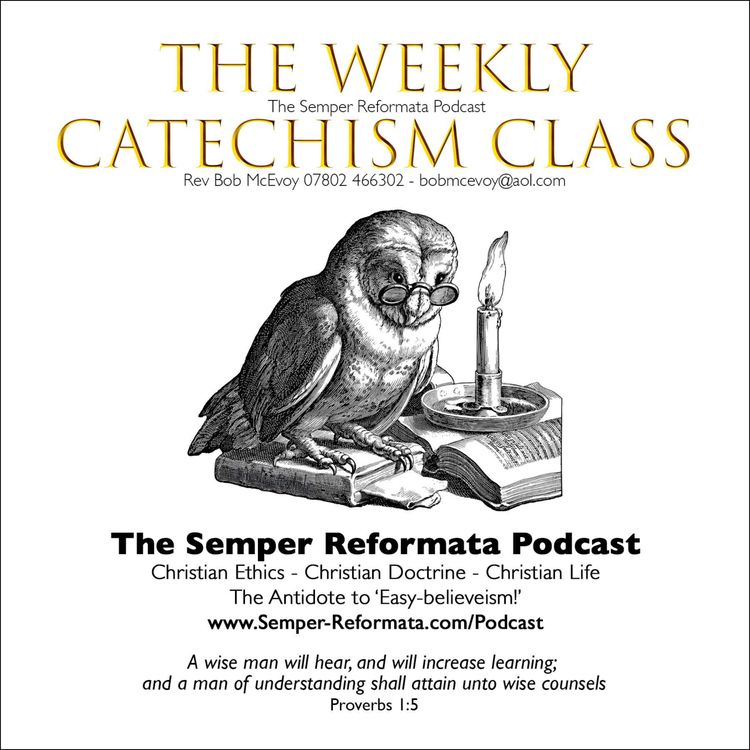
The Semper Reformata Podcast
Catechism Class: LD40, Q105 Thou Shalt Not Kill
Season 3
•
Catechism Class
Lord's Day 40A, Q105
Lord's Day 40A, Q105
Exodus 20:13, Thou Shalt Not Kill – You Shall Not Murder.
Q105. What does God require in the sixth commandment?
A. I am not to dishonour, hate, injure, or kill my neighbour by thoughts, words, or gestures, and much less by deeds, whether personally or through another; rather, I am to put away all desire of revenge. Moreover, I am not to harm or recklessly endanger myself. Therefore, also, the government bears the sword to prevent murder.
We have reached the sixth commandment, found in Exodus 20:13 Thou shalt not kill.
Read the NOTES here.
More episodes
View all episodes
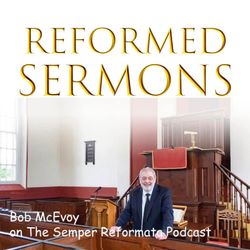
Paul's Liturgy - Part 2
18:15||Season 6Paul's Liturgy - Part 21st Thessalonians 5:16-22Paul adds the fourth essential of Christian worship. It is the exegesis, the expository preaching of the inspired Word of God, the Bible. The Bible is the VERY TRUTH OF GOD. It is ABSOLUTE TRUTH. So, what is our obligation to the truth? What does God expect of us regarding the reception of truth, and that which proves to be error? From the exhortations in our text, let us see what Paul says here about the Word:...Read the NOTES HERE.Recorded live at Ballymacashon.Can you help to keep the podcast going? We will soon have to pay our annual fees to Acast and Wordpress. Even the smallest donation can help. Respond by clicking this link:DONATE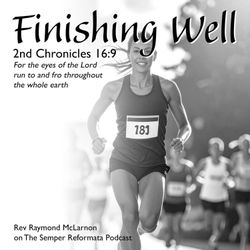
Special Guest Episode with Rev Raymond McLarnon
35:05||Season 6Finishing Well2 Chronicles 16:9In this special podcast episode recorded at Ballymacashon Reformed Church (Congregational) Rev Raymond McLarnon one of retired ministers from Ballymena, Co.Antrim looks at 2nd Chronicles, and the backsliding of Asa, noting that he started well, but finished badly. He relied on the help of man, and failed to fully trust in the Lord - but God seen him, not just his outward actions, but what was in his heart, - for he sees and knows everything in this world. He is omniscient. May we be sure no finish well!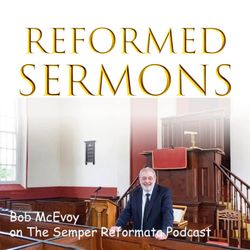
Paul's Liturgy - Part 1
15:18||Season 6Paul's Liturgy Part 1.Text Thessalonians 5:16-22. Paul turns his attention to the WORSHIP of the church. He tells us to rejoice and to pray and be thankful.Read the NOTES HERE.Can you help to keep the podcast going? We will soon have to pay our annual fees to Acast and Wordpress. Even the smallest donation can help. Respond by clicking this link:DONATE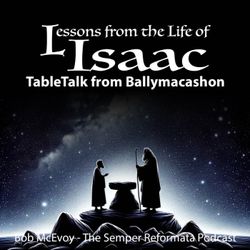
TableTalk - Who Was Isaac?
28:21||Season 6TableTalk - Who Was Isaac?Read: Genesis 22:1-19Welcome to this digital version of Table-Talk, for Tuesday 10th Feb 2026, and our topic this week is “Who was Isaac?” Open your Bible at Genesis 22:1-19, and read the passage. Pause the recording, while you read the Scriptures, and when you have done that, start the recording again.Click to read the NOTES.Can you help to keep the podcast going? We will soon have to pay our annual fees to Acast and Wordpress. Even the smallest donation can help. Respond by clicking this link:DONATE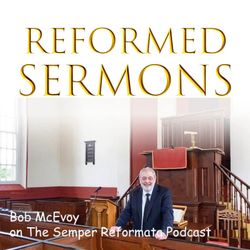
Rejoice Evermore
16:20||Season 6Rejoice Evermore!1 Thessalonians 5:16 Rejoice evermore We are commanded to rejoice, and to rejoice always, – delighting in our faith in God.So, why is it that many Christians don’t seem to have joy in their lives?Let’s try to diagnose the problem.Read the NOTES HERE.Can you help to keep the podcast going? We will soon have to pay our annual fees to Acast and Wordpress. Even the smallest donation can help. Respond by clicking this link:DONATE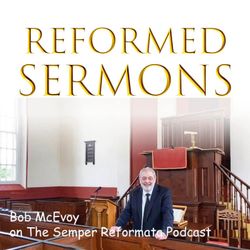
Christian Fellowship: A Guide to Peace and Support
24:57||Season 6Can you help to keep the podcast going? We will soon have to pay our annual fees to Acast and Wordpress. Even the smallest donation can help. Respond by clicking this link:DONATEChristian Fellowship: Peace and Support1st Thessalonians 5:12-15In our last study in 1st Thessalonians, we noticed that Christians not only live for the Lord, in opposition to the world, as individuals, but we live as part of the Christian Community, as those who are equal in status, but diverse in calling. To survive as part of that community we will be:-Determined to live in Peace! – And be at peace among yourselves Responsive to the Needs of Others! 14 Now we exhort you, brethren, warn them that are unruly, comfort the feebleminded, support the weak, be patient toward all men.Prepared to Replace Vengeance with Kindness! So, Paul gives the Thessalonians some specific teaching about the nature of the fellowship that exists within the local church. THIS SERMON WAS RECORDED AT TEMPLEPATRICK REFORMED CHURCH and is used here with their kind permission,READ THE NOTES HERE.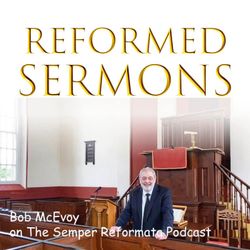
Overseers
17:31||Season 6Living Together in Christ’s Kingdom. – Overseers1st Thessalonians 5:12-13 Paul gives the Thessalonians instructions to improve and sustain relationships in the local church, and does so in the light of the expected suddenness of the return of the Lord. The first of these admonitions is to have respect for the biblical structures that God has set in the local church, – those who are ‘over you in the Lord.’ Overseers.'Read the NOTES HERE.Can you help to keep the podcast going? We will soon have to pay our annual fees to Acast and Wordpress. Even the smallest donation can help. Respond by clicking this link:DONATE
TableTalk - Who Was Ishmael?
24:52||Season 6Who Was Ishmael?Welcome to this digital version of Table-Talk, for Tuesday 20th Jan 2026, and our topic this week is “Who was Ishmael?” Open your Bible at Galatians 4:21-31, and read the passage. Pause the recording, while you read the Scriptures, and when you have done that, start the recording again. So, we are asking “Who was Ishmael?” - it’s important for us to know a little bit about Ishmael, - to see his relevance for Christians, and learn a little about Paul’s use of Ismael as an analogy for the freedom we have in Christ, in other words, how Jesus in his sinless life and atoning death has set us free from Jewish ritual, and the bondage of the law.So, first, let’s learn Ismael’s story, and then we’ll do a little bit of Christian doctrine.Cover image courtesy of ‘Open Bible’ https://www.openbible.info/labs/ai-bible-art/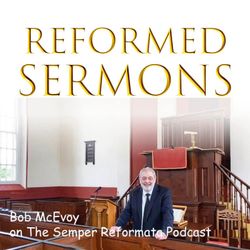
Be Ready - Take Comfort
22:12||Season 6Be Ready Text: 1 Thess 5:1-11Paul has advised the Thessalonian church that they should not be worried about the Lord’s return. In fact it should be a comfort to them, something to await with expectation, and joy, a reuniting of those who have died in Christ, as the great shout is heard and the trumpet sounds and the dead are raised and we rise to go to be with the Lord… …and thus we shall also be with the Lord, 8 Therefore comfort one another with these words!Read the NOTES HERE.